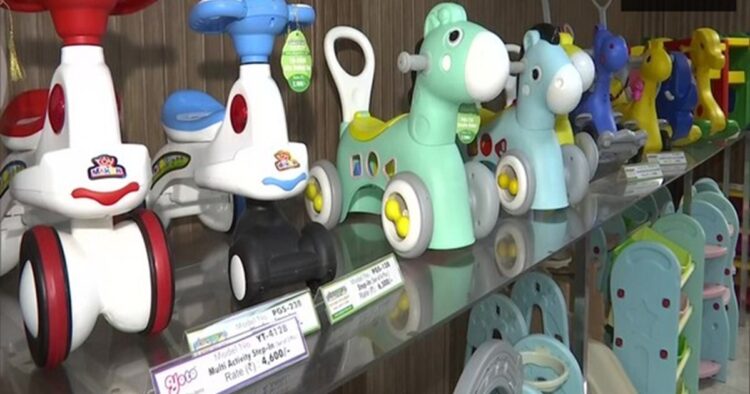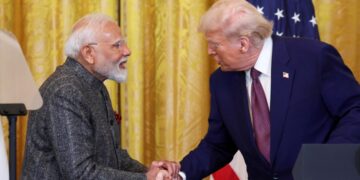Bharat is embarking on a significant journey to revamp its toy manufacturing landscape, aiming to reduce its dependency on imports and establish itself as a key player in the global toy market.
Traditionally reliant on imports, particularly from China, Bharat has seen a substantial decrease in toy imports from its neighbor, with estimates suggesting a reduction of up to 70% in recent years.
This shift is attributed to a series of policy interventions aimed at bolstering domestic toy production. Import duties have been raised to discourage the influx of cheap imports, while a renewed emphasis on quality and incentives has created a conducive environment for manufacturers, especially within the largely unorganized sector.
As part of the ‘Local for Vocal’ initiative, Bharat is actively promoting indigenous toy production, with a particular focus on supporting small and medium-sized manufacturers. The country’s toy market, currently valued at approximately USD 1.5 billion, is poised for rapid expansion, projected to double by 2028 with a compound annual growth rate (CAGR) of 12% between 2022-2028.
In a bid to further bolster the industry, the Bhartiya Janta Party (BJP) has pledged in its 2024 election manifesto to transform Bharat into the global hub for toy manufacturing.
Leveraging the country’s skilled workforce and rich cultural heritage, this initiative is expected to provide a significant boost to an industry still in its nascent stages of growth.
One company at the forefront of this transformation is Ace Turtle, the licensee for Toys”R”Us in Bharat. Nitin Chhabra, CEO of Ace Turtle, lauded the government’s efforts, particularly the implementation of the National Action Plan for Toys (NAPT), aimed at promoting the ‘Vocal for Local’ ethos in the toy industry.
The establishment of over 60 toy clusters across the country, along with various state-level incentives, has further galvanized the sector.
Toys”R”Us, with its expansion plans, underscores the growing optimism within the industry. Chhabra revealed plans to open eight new stores by the end of 2024, with a long-term goal of 50 stores within the next three years, targeting both tier-1 and tier-2 cities.
While the industry is poised for exponential growth, challenges remain. The unorganized sector still constitutes a significant portion of the market, presenting both opportunities and hurdles for newer players.
However, startups like Jammbo, founded in 2023, have demonstrated remarkable success, achieving Rs 50 crore in revenue in its inaugural year.
Vipin Nijhawan, Co-founder and CPO of Jammbo, expressed ambitious aspirations, aiming to position Bharat as the toy capital of the world by 2030. With a focus on local manufacturing adhering to global standards, Jammbo exemplifies the potential of indigenous players in driving the industry forward.
Government initiatives such as the introduction of the Bureau of Indian Standards (BIS) certification for toys and production-linked incentive schemes have been instrumental in fostering a safer and more competitive market environment.
Educational toys, particularly those focusing on STEM subjects, are gaining traction, reflecting Bharat’s emphasis on learning and skill development.
While the industry’s growth trajectory is promising, challenges persist, with some newcomers facing stiff competition and opting to shutter their operations.
Therefore, with concerted efforts from both the government and industry players, Bharat’s toy manufacturing sector is poised for a transformative journey, signaling its emergence as a global force in the years to come.

















Comments